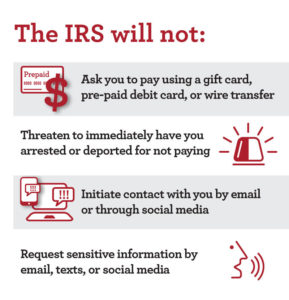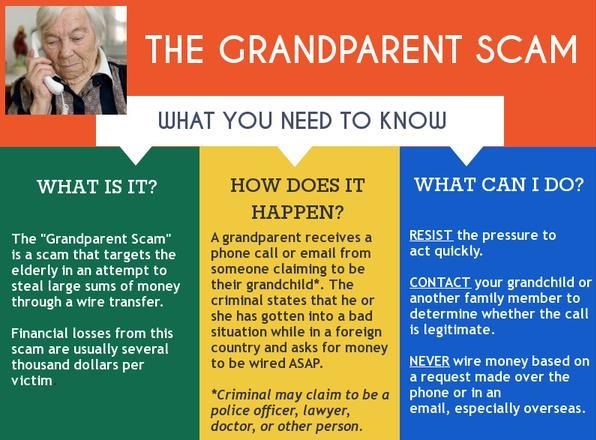
With the right communication, you can empower them to take care of themselves
According to statistics compiled by the FBI and the FTC, cybercrime against older people is on the rise. In addition to increasing five-fold since 2014, these crimes cost more than $650 million per year. But, luckily, there are things you can do to protect your elder loved ones from online scams.
First, talk with them about what to look out for and how to protect themselves. And here’s an important point of emphasis: You need to talk with them, not at them. Your older relatives have a whole lifetime of experience; a whole lifetime of making their own decisions and relying on their own judgement. It’s unlikely that they’re going to want to be lectured by someone who is 20 or 30 or even 50 years younger than they are.
Think about this way: Would you want your niece or nephew to lecture you about the safety of a neighborhood that you’d lived in for longer than they’ve been alive? Of course not! And to the same token, your older relatives don’t want to be lectured about safety online.
So instead of lecturing, empower them to take care of themselves. One way to start the conversation is by googling their names and showing them what’s publicly available online. This is a good way to visually illustrate to them how easy it is for scammers to get information about someone.
You can also send links to the American Association of Retired Persons (AARP), which not only has a whole webpage of articles about current scams but also has a newsletter and an interactive map where you can see what scams are currently trending in your area. If you’re able to see your loved one in person, you can even sit down with them and go through the map together.
You can also offer to be their sounding board if they think something might be a scam, with no judgement. Tell them they can share any email, direct message, pop-up — anything — and you’ll help them figure out if it’s legit or not. That way, you get to help your parent (or grandparent or aunt or uncle) and they get the bonus of more time spent with you.
Finally, don’t automatically assume that your older relatives know nothing about technology. They, like basically everyone in the 21st century, probably use some types of tech and not other — and for a variety of different reasons. Ask them about their tech use and pay attention to what they tell you. Listening will help you help them.
How to talk to your elders about specific scams
You can also have conversations about the specific scams that your loved one might encounter online. Here’s information about how to identify some of the most common online elder scams.

Phishing
Phishing is kind of an umbrella term that covers a range of different types of scams. Scammers reach out via email, phone calls, direct messages, or SMS and use information about the person to try and get them to give over something valuable. So, for example, a scammer might pretend to be you and send your grandma a link that contains malware or that redirects her to a fake site and then asks her to put in personal info, like her credit card.
The best defense against a phishing scam is to verify with the person who sent the email or message before clicking on anything. Tell your loved one to give a call or text asking “Hey, is this you?”. And also recommend that they check their gut! If the wording of a message feels weird or you’re not usually in contact via that medium, it’s much more likely that it’s a scam.
 Sweetheart scam
Sweetheart scam
Sweetheart scams (also called “romance scams”) are when a scammer finds someone online, starts talking to them, forms a relationship, and then asks for money. Before you even get to talking, some common signs of a sweetheart scam are military photos (for men) and women with a lot of plastic surgery. They also often have poor grammar or spelling.
However, those are the most obvious scammers. Less obvious ones will use information gleaned from other sources online to get a mark to fall for them. They’ll often ask to take the conversation off of the dating app or site where they “met” their potential victim. And they’ll refuse to meet in person — or just always have an excuse.
Once a romance scammer believes that their potential victim loves them (or, at the very least, cares for them a lot), they’ll ask for money. Sometimes it’s a “temporary advance” or sometimes it’s a gift card.
Talk to your loved ones about this type of scam, especially if they’re single and potentially looking for romance online. You can also show them how to do a reverse image search, to verify that a photo is actually of the person it claims to be of, and point them to the site Social Catfish, which does more in-depth investigations of people for a fee.
 IRS scam
IRS scam
IRS scams take a few different forms, but a common one is a text, email, or phone call claiming to be from the IRS. They’ll say that the victim owes back taxes or will try to get ahold of their social security number.
The best way to protect your elder family members from this type of scam is to tell them that the IRS will never call or email you, nor will they ask for a social security number over the phone. No matter how convincing the contact is, they should never, ever respond.
Tech support scam
There’s an entire industry in India that exists solely to scam people via phone calls about “tech support.” And while this one technically isn’t an internet scam, because it’s done over the phone, it’s very much related to the internet.
Basically, a tech support scammer will call and pretend to be from a legitimate company, like Microsoft or Apple. (Or even Avast!) They’ll give some reason that seems to justify granting access to the victim’s computer or they’ll convince them to give over credit card information. If a potential victim starts to question them, they’ll often get belligerent and rude, even to the point of yelling.
In addition to telling your older family members about this type of scam, let them know that no legitimate company will ever call them for “tech support.” That’s just not how the industry works. And if they do find themselves in a conversation with a “tech support” person, payment through gift cards, pre-loaded cards, wire transfers, or peer-to-peer money transfers (like Venmo or CashApp) are a sure sign that it’s a scam. Finally, make sure that they never, ever give a “tech support” person remote access to their computer, no matter how much they insist.
 Grandchild scam
Grandchild scam
The grandchild scam is maybe the most insidious on this list. It’s a type of phishing scam, where scammers get information online — like on social media — and then call up pretending to be someone’s grandchild. They say they’re in trouble (for example, they got arrested on vacation in Mexico) and need money to get out of a bad situation. They’ll say it’s urgent and that they’re too embarrassed to go to their parents.
Tell your grandparents that you’ll never do this. But just to be careful, you can set up a code with them — like a question that only you know the answer to — that they can use to test out a caller and see if it’s really you.
Remember: there are entire industries set up whose entire business model is scamming older adults out of their money. If your loved one does get scammed, there’s no shame. Let them know you’ll be there for them, no matter what.
If you think your loved ones have been scammed and they gave them any money make sure that they contact their bank or credit card company right away and explain to them what happened.
If your loved one gave them access to their computer then give us a call or bring it by either of our stores. We can go through the computer and make sure there is nothing malicious on the computer so they can get back in and cause more harm than they already have.
Friendly Computers is here to help!
Why Call A GEEK When You Can Call A FRIEND!
Source: https://blog.avast.com/preventing-elder-scams-avast



